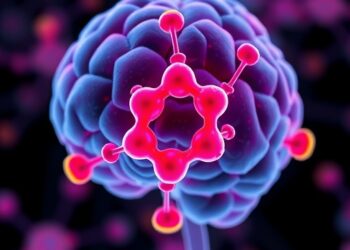A new Cleveland Clinic study has identified diet-derived molecules called metabolites as main drivers of young-onset colorectal cancer risk, especially those associated with red and processed meat. The NPJ Precision Oncology report, which analyzed metabolite and microbiome datasets, highlighted that one of the best ways a younger (<60 years) adult can prevent colorectal cancer is to discuss their diet with their doctor.
A new Cleveland Clinic study has identified diet-derived molecules called metabolites as main drivers of young-onset colorectal cancer risk, especially those associated with red and processed meat. The NPJ Precision Oncology report, which analyzed metabolite and microbiome datasets, highlighted that one of the best ways a younger (<60 years) adult can prevent colorectal cancer is to discuss their diet with their doctor.
Increased monitoring and screening for colorectal cancer is an extremely helpful tool. Despite the success of these methods, these data indicate physicians can take a different approach with their younger patients, says senior author and gastrointestinal oncologist Suneel Kamath, MD.
“At the end of the day, it’s impractical to apply our care models for those over 60 to younger adults simply because we cannot give everyone in the system yearly colonoscopies,” he explains. “What is much more feasible is to give everyone in the system a simple test to measure a biomarker that determines their colorectal cancer risk. Then we can give the most at-risk individuals appropriate screening.”
Former clinical fellow Thejus Jayakrishnan, MD, and Naseer Sangwan, PhD, director of the Microbial Sequencing & Analytics Resource Core co-led the work. Researchers in Cleveland Clinic’s Center for Young-Onset Colorectal Cancer provided large-scale analyses of patient data from individuals who received care for either young- or average-onset colorectal cancer at Cleveland Clinic.
One previous study from this team identified differences in the metabolites (diet-derived molecules) of young- versus average-onset colorectal cancer, while another identified differences in gut microbiome between younger and older adults with colorectal cancer. These studies provided many potential directions for studying young-onset CRC. However, when more factors are involved in cancer risk, it becomes more complicated to understand what’s going on and plan future research, Dr. Sangwan says. Interactions between these factors, like when our gut bacteria consume our metabolites and produce their own, make it even more complex.
Dr. Sangwan and his team then developed an artificial intelligence (AI) algorithm to combine and analyze the existing studies’ datasets and clarify what factors are most relevant for future study. Surprisingly, Dr. Sangwan’s analysis revealed that differences in diet (identified through analyzing metabolites) accounted for a significant proportion of the differences observed between the young-onset and older-onset patients.
“Researchers – ourselves included – have begun to focus on the gut microbiome as a primary contributor to colon cancer risk. But our data clearly shows that the main driver is diet,” Dr. Sangwan says. “We already know the main metabolites associated with young-onset risk, so we can now move our research forward in the correct direction.”
The team was excited to see diet play such a large role in cancer risk, because it is much easier to identify at-risk patients by counting the metabolites in their blood than it is to sequence the bacterial DNA in their stool for different microbes.
“It can actually be very complicated and difficult to change your microbiome,” explains Dr. Kamath. “While it’s not always easy, it is much simpler to change your diet to prevent colon cancer.”
Addressing factors in diet to prevent colon cancer
Younger colon cancer patients had higher levels of metabolites associated with the production and metabolism of an amino acid called arginine, and with the urea cycle compared to their older peers. These differences may be tied to long-term consumption of red meat and processed meat. The team is now analyzing national datasets to validate their Cleveland Clinic-specific findings in patients across the country.
After they show that arginine and urea cycle metabolites (and, by proxy, red and processed meat overconsumption) are elevated across younger adults with colon cancer nationwide, they plan to test whether certain diets or commercially available drugs that regulate arginine production and the urea cycle can help prevent or even treat young-onset colorectal cancer.
Dr. Kamath says that even though more research is needed to understand exactly how dietary factors cause colon cancer, his current findings have already changed the way he delivers patient care.
“Even though I knew before this study that diet is an important factor in colon cancer risk, I didn’t always discuss it with my patients during their first visit. There is so much going on, it can already be so overwhelming,” says Dr. Kamath. “Now, I always make sure to bring it up to my patients, and to any healthy friends or family members they may come in with, to try and equip them with the tools they need to make informed choices about their lifestyle.”
Journal
npj Precision Oncology
Article Title
Multi-omics machine learning to study host-microbiome interactions in early-onset colorectal cancer
Article Publication Date
17-Jul-2024




